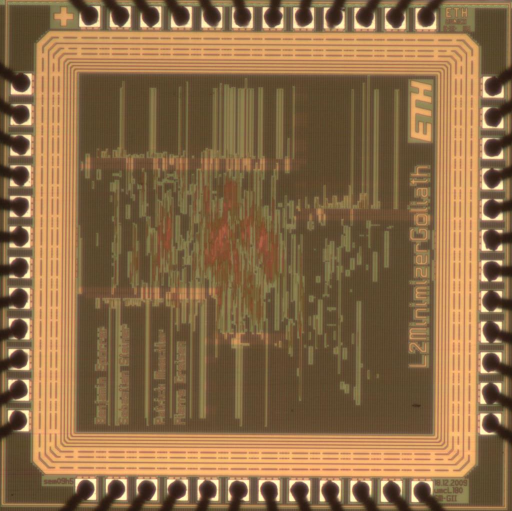The IIS Chip Gallery
OMP (2009)

by

| Application | Communication |
| Technology | 180 |
| Manufacturer | UMC |
| Type | Semester Thesis |
| Package | QFN56 |
| Dimensions | 1525μm x 1525μm |
| Gates | 90 kGE |
| Voltage | 1.8 V |
| Power | 189 mW |
| Clock | 156.25 MHz |
Broadband wireless channels often show sparse impulse responses and the theory of compressed sensing (CS) allows to exploit this sparsity. In the case of the upcoming LTE standard, CS improves the quality of the channel estimation compared to least-squares estimation.
The goal of this semester thesis was to implement part of the orthogonal matching pursuit (OMP) algorithm for sparse channel estimation. OMP belongs to the class of greedy algorithms, which approximate the ideal solution of the sparse reconstruction problem by iterative processing. OMP extends the more simple matching pursuit algorithm by a least squares optimization step. This additional step leads to better performance and convergence with fewer iterations, which means that not more than one iteration per non-zero component of the sampled impulse response must be performed.
The modified Gram-Schmidt algorithm was found to be the most efficient candidate to perform the necessary QR decomposition. The Gram-Schmidt QR decomposition allows to solve the least squares problem for very tall matrices (this implementation works for matrix dimensions of up to 200x10, which covers 10 MHz LTE channels with up to 10 reflections). The least squares minimization implemented in this work, combined with the functionality of the gradient pursuit implementation from another semester thesis, will result in a full OMP implementation.